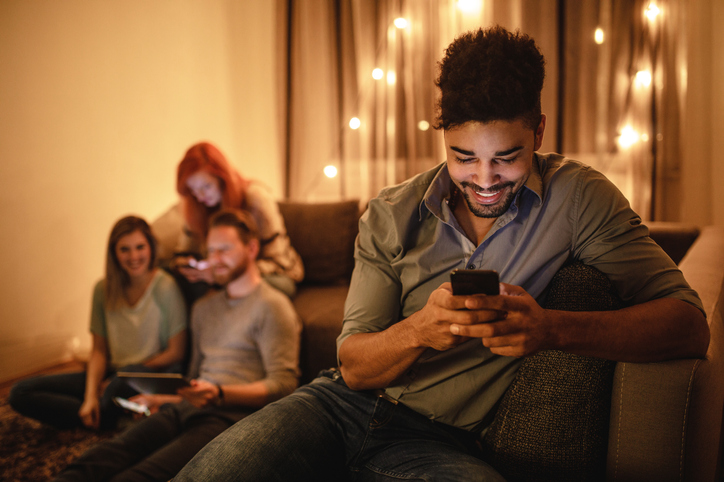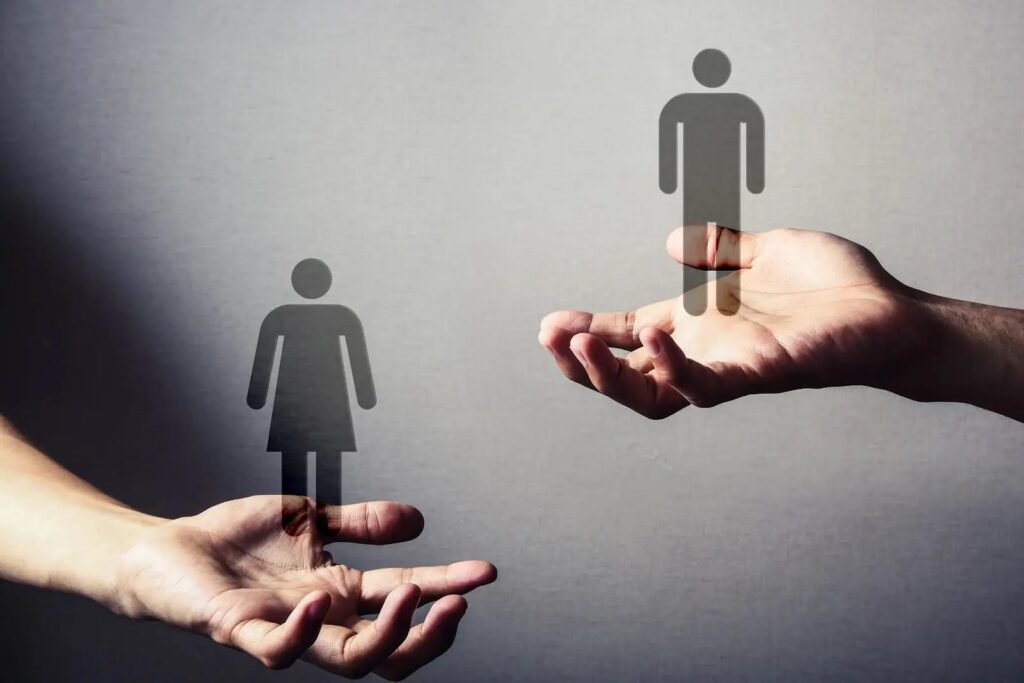Introduction
Now a day, technology is developing very fast and changing within seconds. The invention of new technology completes the demons of human beings. Although here, a question arises does technology make us more alone or not? Think about how deeply technology plays a role in our life; the fans and the Air conditioning we use to take cool air is technology.
We always use technology whenever we want to talk to our family or friend at a distance by smartphone and many more things. So it depends from person to person that does technology make us more alone or not. So in this article, we talk about whether technology makes us alone or not and .how it’s affecting our lives.
So let’s take a start to discuss technology. Make sure you read this till the end of the article.
The Deception Of Connectivity
does technology make us more alone Without any question, social networking sites, messaging programs, and online communities have improved our ability to communicate with loved ones no matter how far away they may be. Immediately we may share our feelings, ideas, and experiences with a vast network of people.
However, this sense of frequently only lasts on the surface, encouraging the illusion of intimacy without actual emotional depth. Despite the seeming closeness, online conversations may lack the subtleties of in-person interaction, creating a sensation of separation.

Less Interaction With Individuals
Due to technology, physical interaction in social gatherings like birthday parties. Weddings or any other gat to gather become less we sent wishing just texting them sent gives through delivery services. Or as well we as there are also delivery services for ordering groceries and many items used in daily life. Due to which are, interaction becomes limited, and Technology Make Us More Alone.
The pervasive integration of technology into our daily lives has undeniably transformed the way we interact with others, often leading to concerns that it might make us more isolated and alone. While technology has opened up new avenues for communication and connectivity, it has also introduced a paradoxical element of solitude.
The convenience of smartphones and social media can sometimes encourage superficial interactions, where individuals opt for screen-based exchanges over face-to-face connections. This shift can lead to a sense of detachment from real-life relationships, with people increasingly seeking solace in virtual realms.
Comparison In Society As Well As Insecurity
Online social networking sites frequently promote an atmosphere of comparison. Users often view edited versions of their friends’ lives, which might make them feel inadequate and lonely. As people seek to paint a perfect understanding of who they are online, further cutting them off from their genuine selves and feelings, these constant comparisons can lead to a cycle of discontent.
If we talk about any social media influencer, such as fitness influencers, they make reals when their physic becomes aesthetic. But many show little hard work, time, and patience he contributes. They also don’t show the bulky phase that they become bulky during bodybuilding. Or we can take the example of fashion influencers and how perfectly they show the transition of clothes and makeup looks. So, Technology Make Us More Alone.

Decline In Empathy
Due to online interaction, the distance biome is greater. For example, if any person needs your emotional support, it’s tough to give support and empathy to them online. In other words, it’s immoral, and even if we don’t understand what’s happening to the person, neither does he/she understand. Technology makes us More Alone because no one comes to us for interaction.
Make You Addicted
Technology Make Us More Alone. The biggest addiction to technology in our daily needs is our smartphone. Our life is incomplete, and we can breathe. Mobile phones make us super isolated, but .when our mobile phones are in our hands, we feel entire, but indirectly, its isolates us from the world. Although it appears that way, their bodies are not as connected. We create digital fake acquaintances,” but we have no idea who they’re or whether they will depend on us.
It Replaces The Self
Technology Make Us More Alone know the time of virtual reality, which completely replaces your presence. If you want to attend a business meeting and cannot go due to virtual reality, you present there and attend your meeting. Virtual reality is like a person like you. Still, it’s a digital machine, not a human. Virtual reality also limits your physical presence and stops you from interacting with people. But we don’t ignore the fact that use always depends on us.
Lack Of Personality Development And Facing The World
Technology Make Us More Alone. The individuals who don’t face the public cant develop their personalities well. Think about it if you are lying in a room 24/7 and don’t interact with people so when you start to talk or accidentally meet a person so you don’t know how to speak with the person, and this is the drawback of technology, and due to this, he doesn’t meet anyone.
The increasing reliance on technology in our lives has raised concerns about its potential impact on personality development and our ability to face the world. In the digital age, where virtual interactions often take precedence over face-to-face encounters, there is a risk that individuals may miss out on essential experiences and challenges that contribute to personal growth.
Technology Make Us More Alone, online spaces can sometimes provide a sheltered environment where people can curate their online personas and avoid real-world confrontations, hindering their emotional and social development. Moreover, the constant access to screens and the allure of social media can create a sense of detachment from the physical world, making it difficult for individuals to build the resilience and interpersonal skills necessary for navigating real-life situations.

Technology With Another Perspective
Until now, we have discussed some misuse. The negative impact of technology, which is more likely than technology, makes us alone and isolates us, but we don’t ignore that the use entirely depends on us. We recognize that technology replaces humans; report labor is installed in first-world countries.
Although under this heading, we discussed some opposite sites of technology.
Technology enables rapid and ongoing communication no matter how far off we are from our loved ones and Technology Make Us More Alone. We can keep constant relationships with family and friends through messages and video conversations, filling the void left by physical distance.
Because of Technological change, people with disabilities now have access to interaction and knowledge, which encourages inclusion and lessens social isolation.
Even when we are not physically there, social media platforms allow us to stay informed about the lives of our friends and acquaintances, promoting a sense of integration and belonging.
No matter where they are, people can stay in touch with their coworkers and preserve a sense of a professional community because the technology supports remote work and online communication.
People dealing with similar issues, such as chronic illnesses or mental health issues, can connect thanks to technology. A secure setting for exchanging experiences and getting emotional support is provided through online support groups.
Technology also enables us to learn more and more things faster by searching the Internet for many different tips and techniques. These all research on one click, and you get multiple resources, so if you want to explore, the technology benefits you; although it helps to make virtual friends, in short, no Technology Make Us More Alone. Sometimes it makes long-distance straightforward.
Digital platforms for enjoyment and cooperative online games offer chances for interaction with others and teamwork, building relationships, and togetherness.
People drawn to technology may avoid social situations and engage virtually rather than in person. This disengagement from interpersonal contacts in the actual world can impede the growth of vital social abilities, widening the estrangement gap.
Despite the opportunity for connectivity that technology provides, only some have access to it. The digital gap, caused by unequal access to information and internet access, can worsen social isolation and isolate underprivileged people.
Even though no one should count solely on technology to fulfill their interpersonal requirements, it may be a terrific place to start and open the door to deeper interactions. First, moderate social media use can aid in the fight against loneliness, particularly for groups like older people who find it difficult to interact in person. Another way people might utilize technology is to discover like-minded people to hang out with or to find a spouse on a dating app.
Conclusion
Let’s take a short preview of the whole article. First of all, we start the piece with a counter statement about the technology that is dose Technology Make Us More Alone or not. After this, we discussed some of the impacts of technology, which isolate individuals and make them alone. After that, we chrome to the opposite side of technology to view different perspectives of technology.
On that heading, we highlight some excellent impacts of technology on individuals .know both aspects of technology are in front of you, and the situation is clear, like water. Most of the time, Technology Make Us More Alone. But at last, we use the things in our hands because we create them and know their pros and cons. It would help if you used the stuff in limited excessive aby thing make trouble see the ball in your court.
So this is all bout technology.
Does technology make us more alone? So the answer is yes, it makes us more isolated, which we cant imagine. To learn how to use it because the invention doesn’t stop because time and the ways of things change.




















